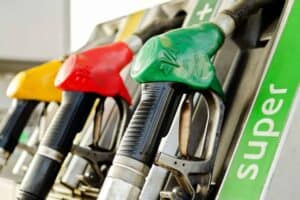A practical approach rather than pouring fuel pills into the tank should be applied.

With fuel prices back in the spotlight after the first increase of the year this month, consumers are expected to, once again, embark on measures to save at the pumps as the country’s economy continues to decline.
Of the most recent methods to have come under scrutiny are so-called fuel pills that are claimed to boost fuel economy and performance while offsetting higher than usual visits to the pumps.
Reiterating comments made last year though, MasterDrive CEO Eugene Herbert said the practice of slipping what has been branded the “miracle tablet” into a car’s fuel tank needs to stop as owners risk more bad than good.
If it sound too good, avoid
“If a fuel pill contains naphthalene and ferrocene, there is little to no benefit and can even cause greater fuel consumption. If you do not know what it contains, you are being taken advantage of,” Herbert said.
“It cannot be overemphasised that the only thing intended to go into your fuel tank is fuel. Another gimmick some have tried using is Coca-Cola instead of fuel”.
ALSO READ: Fuel pills: Experts warn dropping pills into tank could reduce performance
“A company associated with a viral video distanced itself because Coca-Cola is definitely not a safe substitute for fuel. It will likely cost much more than potential improbable savings,” Herbert said.
Also not worth it…
He also dispelled other so-called “hacks” claimed to improve consumption once poured into a car’s tank. These includes toothpaste, tomato sauce, dishwashing tablets, filling up early in the morning and externally and overinflating a vehicle’s tyres.
“It is not true that if it doesn’t work, ‘no harm no foul.’ It can cause plenty of harm which is not worth the supposed savings. Research proves it can only cause harm to your vehicle. Ultimately, if it sounds too good to be true, it probably is,” Herbert remarked.
Instead, he stated that a more practical than inventive method need to be applied in order to reduce fuel costs while maximising consumption.
Try these instead
These include regular maintenance, keeping a following distance equal to 12 seconds as you drive, not exceeding 3 000 rpm, reducing your speed by 20 km/h relative to the speed limit, using smartphone apps to avoid congested areas and removing any unnecessary items from the boot or rear seats.
NOW READ: Audi and Rubicon partnership sparks more EV chargers
Support Local Journalism
Add The Citizen as a Preferred Source on Google and follow us on Google News to see more of our trusted reporting in Google News and Top Stories.








